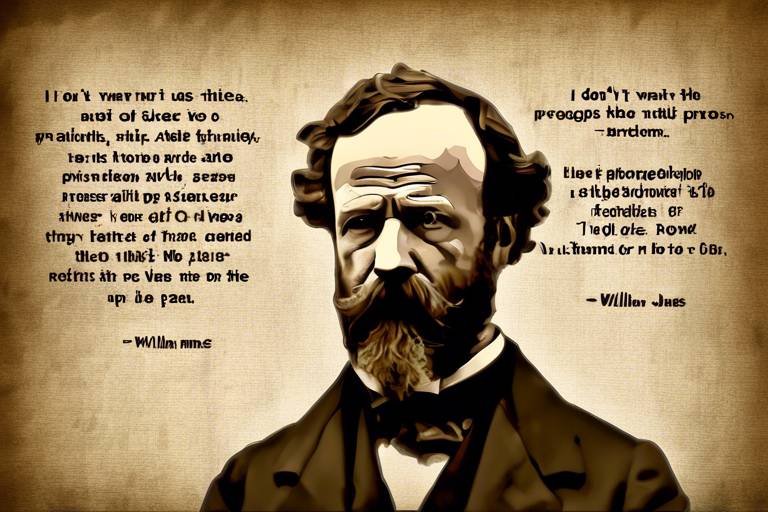Deconstructing Michel Foucault's Panopticism Thesis
Michel Foucault’s concept of panopticism is nothing short of revolutionary; it has reshaped our understanding of power dynamics, surveillance, and social control in contemporary society. Imagine a world where every action you take is observed, where your behaviors are subtly guided by the knowledge that you might be watched at any moment. This is the essence of panopticism—a term derived from the architectural design of the Panopticon, a prison structure proposed by Jeremy Bentham. In this article, we will explore the depths of Foucault’s thesis, dissecting its implications and relevance in today’s world. We aim to peel back the layers of this complex idea, revealing how it continues to influence our lives in ways we might not even recognize.
At its core, panopticism revolves around the relationship between surveillance and power. Foucault argued that modern society has transitioned from a form of power that is exerted through violence and coercion to one that operates through observation and normalization. This shift is crucial because it signifies a change in how authority is maintained. Instead of relying solely on force, power now infiltrates the very fabric of social life, subtly shaping behaviors and expectations. The panopticon serves as a powerful metaphor for this dynamic, illustrating how individuals internalize the gaze of authority, leading them to regulate their own behavior.
To truly grasp the significance of panopticism, we must consider the historical backdrop against which Foucault was writing. In the late 20th century, as societies grappled with the aftermath of war and the rise of bureaucratic institutions, the mechanisms of control evolved. Foucault examined how institutions such as prisons, schools, and hospitals were not merely places of confinement or care; they were also arenas of surveillance and discipline. This historical context is essential for understanding how surveillance became a normalized aspect of daily life, influencing everything from education to public health policies.
Fast forward to today, and the principles of panopticism are more relevant than ever. The advent of technology has transformed our lives, making surveillance not just a possibility but a pervasive reality. From CCTV cameras in public spaces to the tracking of our online activities, the mechanisms of observation have intensified. We live in a society where our actions are constantly monitored, often without our explicit consent. This omnipresent surveillance raises critical questions about privacy and autonomy. Are we truly free when our every move is scrutinized? The implications of this surveillance culture extend beyond mere observation; they seep into our social interactions, shaping how we communicate, express dissent, and even form relationships.
As we delve deeper into the digital age, a new form of panopticism emerges—one that is intricately linked to our online lives. Social media platforms, while offering avenues for connection and expression, also serve as tools for surveillance. Every post, like, and share contributes to a digital footprint that is meticulously tracked and analyzed. This digital panopticism not only reshapes our understanding of privacy but also influences how we curate our identities online. Users often find themselves caught in a web of self-surveillance, constantly aware that their digital personas are subject to scrutiny. The paradox is striking: in seeking connection, we may inadvertently surrender our autonomy.
Let’s not forget the role of institutions in perpetuating these panoptic structures. Schools, for instance, are designed not just for education but also for surveillance. The constant monitoring of students—through cameras, attendance systems, and behavioral assessments—creates an environment where conformity is expected. Similarly, prisons embody Foucault's thesis by exemplifying how surveillance operates as a means of control. The psychological effects of being watched can be profound, leading individuals to alter their behaviors to fit societal norms. This raises an important question: how does constant observation affect our sense of self and agency?
While Foucault’s panopticism offers valuable insights, it is not without its critiques. Some argue that viewing surveillance solely through the lens of power and control oversimplifies the complexities of human behavior and social interactions. Not every instance of surveillance is inherently oppressive; in some contexts, it can foster safety and accountability. Additionally, critics contend that Foucault’s framework may overlook the agency individuals possess in navigating these structures. Are we merely passive subjects under surveillance, or do we have the capacity to resist and redefine our relationships with power?
In the realm of politics, panopticism informs current governance strategies. The balance between security and civil liberties is a contentious issue, with many governments employing surveillance as a means of maintaining order. This raises ethical dilemmas about the extent to which personal freedoms can be compromised in the name of security. The public’s perception of authority is also influenced by these dynamics, as citizens grapple with the implications of being watched. How do we reconcile our desire for safety with the need for privacy?
As we navigate the complexities of social media, we encounter a dual-edged sword. On one hand, platforms empower individuals to share their voices; on the other, they subject users to the very surveillance Foucault critiqued. The phenomenon of user-generated content can both challenge and reinforce existing power structures. While individuals can express dissent and mobilize for change, they also risk being surveilled and controlled by the very platforms they utilize for empowerment. This intricate dance between empowerment and constraint is a hallmark of modern panopticism.
Despite the overwhelming nature of surveillance, it’s essential to recognize the potential for resistance and reclaiming agency. Communities and individuals can challenge panoptic structures through activism, advocacy, and conscious engagement with technology. By fostering awareness and promoting digital literacy, we can navigate the complexities of surveillance more effectively. The journey towards reclaiming agency in a surveilled society is not just about resisting observation; it’s about redefining our relationship with power and asserting our rights to privacy and autonomy.
- What is panopticism? Panopticism is a concept introduced by Michel Foucault that explores the relationship between surveillance and power, illustrating how individuals internalize the gaze of authority.
- How does panopticism relate to modern technology? Modern technology has intensified the principles of panopticism, with surveillance becoming a pervasive aspect of daily life through devices and online platforms.
- What are some critiques of Foucault's panopticism? Critics argue that Foucault's view may oversimplify the complexities of human behavior and overlook the agency individuals have in navigating surveillance.
- Can individuals resist panoptic structures? Yes, individuals and communities can challenge surveillance through activism, education, and conscious engagement with technology.
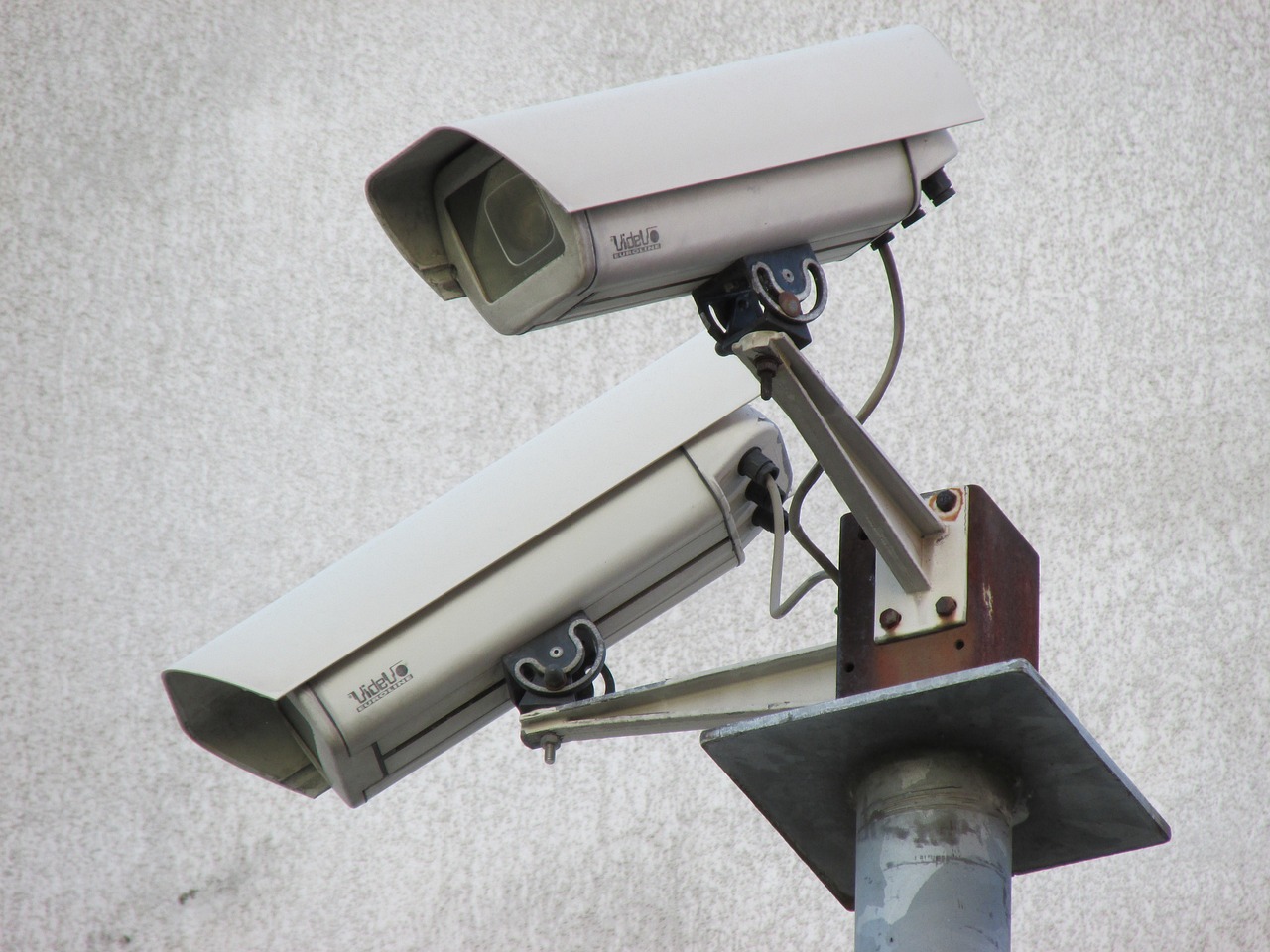
Understanding Panopticism
At its core, panopticism is a concept that emerges from the philosophical musings of Michel Foucault, a French philosopher whose ideas have profoundly influenced how we think about power and surveillance. The term itself is derived from the Panopticon, a type of institutional building designed by the English philosopher Jeremy Bentham in the late 18th century. This structure was ingeniously designed to allow a single guard to observe all inmates of an institution without them being able to tell whether they were being watched or not. The implications of this design go far beyond mere architecture; it serves as a powerful metaphor for modern societal controls and surveillance mechanisms.
Foucault uses this metaphor to illustrate how modern societies have internalized surveillance, creating a culture where individuals regulate their own behavior due to the possibility of being observed. This self-regulation is a form of social control that permeates various aspects of our lives, from workplaces to schools, and even our homes. In essence, panopticism highlights the shift from overt forms of power—like physical coercion—to more subtle, psychological forms of control.
To better understand panopticism, we can break it down into a few key concepts:
- Visibility and Surveillance: The essence of panopticism lies in the visibility of individuals. When people know they are being watched, their behavior changes. This constant potential for observation leads to self-discipline.
- Power Dynamics: Foucault argues that power is not just something that is wielded by a few over the many; instead, it is dispersed throughout society and manifested in various institutions and practices.
- Normalization: Through surveillance, behaviors become normalized. What is deemed acceptable or unacceptable is shaped by the constant observation of others.
These concepts are not merely theoretical; they resonate deeply in our daily lives. Consider how social media platforms operate. Users often curate their online personas, aware that their posts are subject to public scrutiny. This self-censorship is a direct reflection of the panoptic gaze that Foucault describes. In this way, panopticism becomes a lens through which we can examine the intricacies of power, control, and social behavior in the contemporary world.
Moreover, Foucault's analysis extends beyond just the physical surveillance of institutions. He delves into the discursive practices that shape our understanding of normality and deviance. The way we talk about crime, education, and health are all influenced by the panoptic structures that dictate what is considered acceptable behavior. Thus, panopticism serves as a crucial framework for analyzing how power operates in subtle yet pervasive ways.
In conclusion, understanding panopticism is not just about grasping a philosophical concept; it's about recognizing the profound impact of surveillance on our lives and the ways in which we navigate a world where the lines between observation and control are increasingly blurred. Foucault's insights compel us to reflect on our own behaviors and the societal structures that shape them, inviting us to question how much of our actions are truly our own and how much are dictated by the ever-watchful eye of society.

The Historical Context
To truly grasp Michel Foucault's concept of panopticism, it’s essential to dive into the historical backdrop that shaped his thinking. Foucault was writing during a time of significant social upheaval in the late 20th century, a period characterized by rapid changes in political structures, economic systems, and cultural norms. The rise of modernity brought about new forms of governance that prioritized surveillance and control, transforming how societies functioned. Think about it: as cities grew and populations swelled, the need for order and regulation became paramount. This need birthed new institutions and practices aimed at monitoring behavior, leading to what Foucault termed a 'disciplinary society.'
Foucault's exploration of panopticism was heavily influenced by Jeremy Bentham's Panopticon, a revolutionary prison design that allowed a single guard to observe all inmates without them knowing whether they were being watched. This design was not merely about physical surveillance; it symbolized a broader societal shift towards self-regulation through the internalization of surveillance. The idea was simple yet profound: when individuals believe they are being watched, they modify their behavior accordingly. This concept resonates deeply in today's world, where the omnipresence of cameras and monitoring technologies creates a similar psychological effect.
Moreover, the socio-political environment of Foucault's time was marked by the emergence of various institutions—schools, hospitals, and prisons—that increasingly relied on surveillance as a means of maintaining order. These institutions became the breeding grounds for disciplinary practices that shaped individuals' identities and behaviors. The historical context during which Foucault developed his theories was not just about surveillance; it was also about the power dynamics at play within society. He argued that power is not merely repressive but also productive, creating norms and standards that govern how we think and act.
As we trace the evolution of power and surveillance from Foucault's era to the present day, it’s evident that the principles of panopticism have only intensified. The following table illustrates some key historical milestones that contributed to the development of surveillance practices:
| Year | Event | Significance |
|---|---|---|
| 1787 | Design of the Panopticon | Introduced the idea of constant observation in prisons. |
| 19th Century | Rise of Disciplinary Institutions | Schools and prisons began implementing surveillance techniques. |
| 20th Century | Expansion of State Surveillance | Governments increased monitoring of citizens for security and control. |
| 21st Century | Digital Surveillance | Internet and social media platforms enable unprecedented data collection. |
In summary, understanding the historical context of Foucault's panopticism is crucial for comprehending its relevance today. The evolution of surveillance practices, from the physical confines of the Panopticon to the digital landscapes we navigate today, illustrates how power dynamics have shifted but remain deeply embedded in our social fabric. As we continue to explore these themes, it becomes increasingly clear that the implications of panopticism extend far beyond mere observation—they touch on the very essence of what it means to be a part of contemporary society.
- What is panopticism? Panopticism is a concept developed by Michel Foucault that describes a system of control through constant surveillance, where individuals regulate their own behavior due to the awareness of being watched.
- How did Foucault's time influence his theories? Foucault's theories were shaped by the socio-political transformations of the late 20th century, particularly the rise of disciplinary institutions that utilized surveillance to maintain social order.
- What is the relevance of panopticism today? Panopticism remains relevant in contemporary society, especially with advancements in technology that have amplified surveillance practices in various institutions and online platforms.

Surveillance in Modern Society
In today's world, the concept of surveillance has evolved into a pervasive force that shapes our daily lives in ways we often overlook. From the moment we wake up to the sound of our smartphone notifications to the last scroll through social media before bed, we are constantly under the watchful eye of various surveillance mechanisms. This is not just a matter of being observed; it's about how this observation influences our behavior, choices, and even our sense of self. The principles of panopticism, as articulated by Michel Foucault, resonate deeply within our contemporary context, where surveillance has become a normalized aspect of existence.
Consider how we interact with technology. Every click, like, and share is meticulously tracked and analyzed. Social media platforms, for instance, are designed to keep us engaged, but they also serve as tools for surveillance, collecting vast amounts of data on our preferences and behaviors. This data isn't just for improving user experience; it can be used for targeted advertising, political campaigns, and even social control. The digital panopticon is not a distant reality; it is our current environment, where we willingly participate in the act of surveillance by sharing our lives online.
Moreover, the implications of surveillance extend beyond the digital realm. In public spaces, the presence of CCTV cameras has become ubiquitous. These cameras are often justified as necessary for safety and crime prevention, yet they also create a sense of being watched that can alter our behavior. Think about it: how often do you act differently when you know someone is observing you? This constant observation can lead to self-censorship and a reduction in our willingness to express dissenting opinions or engage in behavior that deviates from societal norms.
To illustrate the impact of surveillance on our daily lives, consider the following table that outlines various forms of surveillance we encounter regularly:
| Type of Surveillance | Description | Impact on Society |
|---|---|---|
| Digital Surveillance | Tracking of online activities through cookies and data mining. | Influences consumer behavior and personal privacy. |
| Public Surveillance | Use of CCTV cameras in public spaces. | Creates a sense of safety but can lead to self-censorship. |
| Workplace Surveillance | Monitoring employee performance and communications. | Can increase productivity but also lead to stress and anxiety. |
| Social Media Monitoring | Analysis of user-generated content for trends and behaviors. | Empowers marketing strategies but may infringe on personal freedom. |
As we navigate this landscape, it's crucial to recognize that surveillance is not merely a tool for security; it is a complex web of power dynamics that influences how we relate to one another and ourselves. The awareness of being surveilled can lead to a phenomenon known as the chilling effect, where individuals restrain their actions due to fear of judgment or repercussions. This is particularly concerning in a society that values free expression and individual rights.
In summary, surveillance in modern society is a multifaceted issue that intertwines technology, social behavior, and power relations. As we become increasingly aware of the implications of being watched, we must ask ourselves: how do we reclaim our agency in a world designed to observe us? The answers lie not just in understanding the mechanisms of surveillance, but also in actively challenging the structures that seek to control us.
- What is panopticism? Panopticism is a concept developed by Michel Foucault that describes a system of control through constant surveillance, where individuals regulate their behavior due to the awareness of being watched.
- How does surveillance affect our privacy? Surveillance can significantly infringe on our privacy by monitoring our activities, both online and offline, leading to a loss of personal freedom and autonomy.
- Can we resist surveillance? Yes, individuals and communities can resist surveillance through various means, such as advocating for privacy rights, using encryption technologies, and promoting awareness about surveillance practices.

Digital Panopticism
The rise of the internet and digital technologies has ushered in a new era of surveillance that can be aptly described as . This concept extends Michel Foucault's original thesis into the realm of cyberspace, where the mechanisms of observation and control are not just confined to physical institutions but are woven into the very fabric of our online interactions. Think about it: every click, every like, and every search query contributes to a vast repository of data that companies and governments can monitor. In this digital landscape, the lines between public and private are increasingly blurred, raising critical questions about our privacy and freedom.
Digital Panopticism operates on the principle that individuals are constantly being watched, albeit in a more subtle and pervasive manner than traditional surveillance. Consider social media platforms like Facebook or Instagram, where users willingly share their lives, often unaware of how this information is being harvested and utilized. The algorithms behind these platforms create a feedback loop, where our behaviors are not only monitored but also influenced by the content we consume. This can lead to a form of self-censorship, as users become conscious of being observed, adjusting their online personas to fit societal expectations.
Moreover, the implications of Digital Panopticism extend beyond mere observation; they touch on issues of control and manipulation. For instance, targeted advertising is a direct consequence of surveillance capitalism, where our data is commodified. Companies analyze our online behavior to predict and influence our purchasing decisions, effectively turning us into subjects of a digital experiment. This raises the question: are we the masters of our own choices, or are we merely puppets dancing to the tune of unseen algorithms?
In addition, the rise of smart devices and the Internet of Things (IoT) has further entrenched Digital Panopticism in our daily lives. Everyday objects, from refrigerators to wearables, collect data that can be accessed by corporations and, potentially, governments. This creates a scenario where our homes become extensions of the surveillance apparatus, monitoring our habits and preferences in real time. The convenience these technologies offer often comes at the cost of our autonomy, as we trade privacy for ease of use.
To illustrate the concept of Digital Panopticism, consider the following table that outlines key features of traditional panopticism versus digital panopticism:
| Feature | Traditional Panopticism | Digital Panopticism |
|---|---|---|
| Observation | Physical presence in institutions (e.g., prisons) | Remote monitoring through digital platforms |
| Data Collection | Limited to physical records | Vast amounts of personal data collected online |
| Control Mechanisms | Direct supervision | Algorithm-driven content and targeted advertising |
| Subjectivity | Visible authority | Invisible algorithms and data brokers |
Ultimately, Digital Panopticism challenges us to reconsider our relationship with technology and the implications of living in a surveilled society. As we navigate this complex digital terrain, it’s crucial to remain vigilant and informed about how our data is used and how we can protect our rights to privacy and autonomy. The question remains: in a world where we are constantly being watched, how can we reclaim our agency and redefine our boundaries in the digital age?
- What is Digital Panopticism?
Digital Panopticism refers to the pervasive surveillance and control mechanisms enabled by digital technologies, where individuals are constantly observed through their online activities. - How does Digital Panopticism affect privacy?
It blurs the lines between public and private spaces, leading to potential invasions of privacy as personal data is collected and analyzed by corporations and governments. - What are the implications of being constantly monitored online?
Constant monitoring can lead to self-censorship, manipulation of choices, and a loss of personal autonomy as individuals adjust their behavior based on perceived observation. - How can individuals resist Digital Panopticism?
By being aware of how data is collected and used, individuals can take steps to protect their privacy, such as using encryption, adjusting privacy settings, and limiting the information shared online.
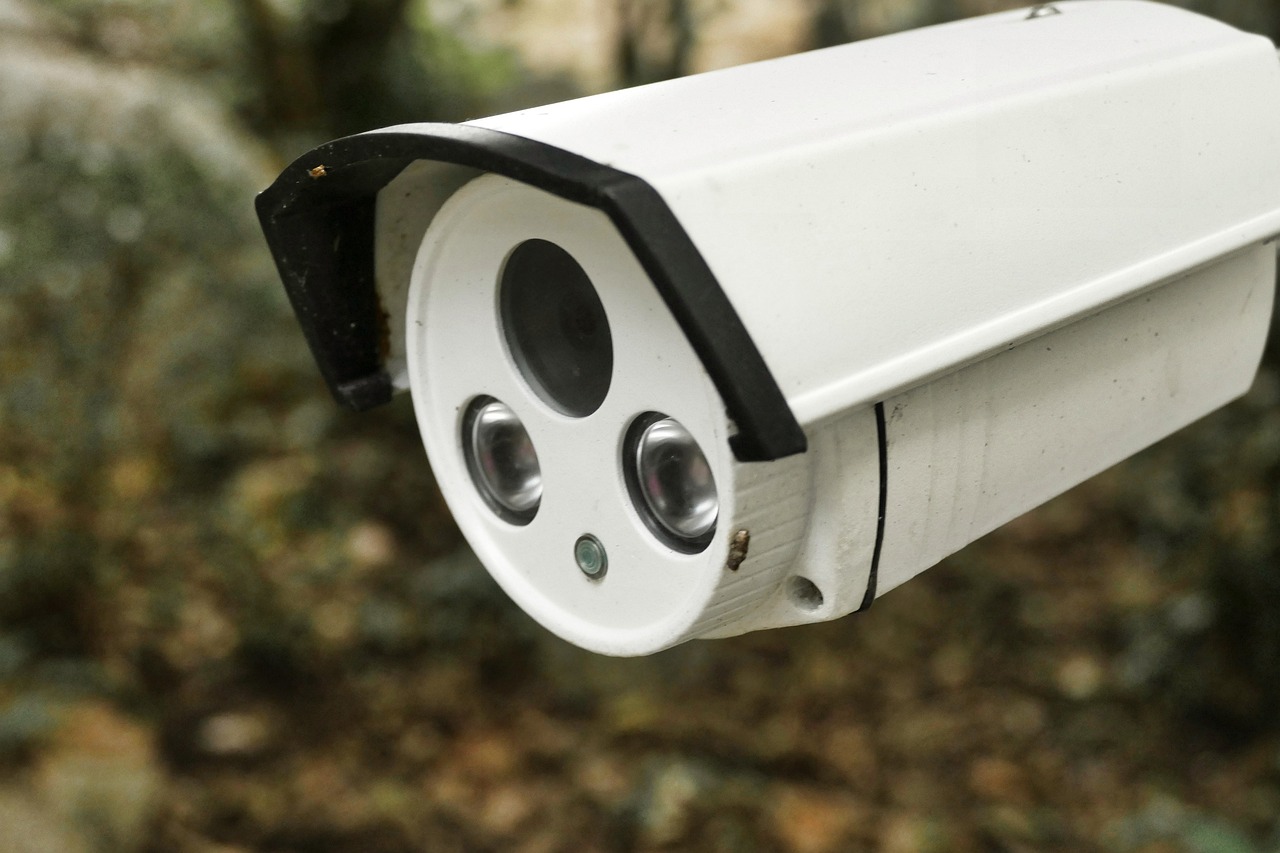
Institutional Surveillance
Institutional surveillance is a fascinating yet unsettling aspect of modern society that reflects Michel Foucault's concept of panopticism. In essence, it refers to the systematic observation and monitoring of individuals within various institutions, such as schools, prisons, and workplaces. These environments are designed not only to maintain order but also to exert control over individuals through the mechanisms of constant surveillance. Imagine being in a classroom where every move you make is watched, or in a workplace where your productivity is tracked in real-time; this is the reality for many today.
At the heart of institutional surveillance lies the idea that knowledge is power. By observing individuals, institutions can gather data that informs their decisions and policies, often leading to an environment of compliance and conformity. For instance, in schools, teachers may monitor students' behavior closely, not just to ensure discipline but to shape their identities and future actions. This creates a culture where students feel they are always being watched, which can lead to heightened anxiety and stress. The psychological effects of such constant observation can be profound, making individuals internalize the surveillance and regulate their own behavior even when they are not being actively watched.
Moreover, the implications of institutional surveillance extend beyond mere observation; they can significantly impact personal freedom and autonomy. In prisons, for example, the panoptic model is starkly illustrated. Inmates are under continuous surveillance, which influences their behavior and interactions. This not only serves to punish but also to rehabilitate, albeit in a deeply flawed system. The table below summarizes some of the key characteristics of institutional surveillance across different settings:
| Institution | Purpose of Surveillance | Impact on Individuals |
|---|---|---|
| Schools | Maintain discipline and monitor behavior | Increased anxiety, compliance, and self-regulation |
| Prisons | Control and rehabilitate inmates | Loss of autonomy, internalized control, potential for recidivism |
| Workplaces | Enhance productivity and ensure compliance | Stress, burnout, and reduced job satisfaction |
As we navigate through our daily lives, it is crucial to recognize how these institutional structures shape our behaviors and perceptions. The question arises: are we merely subjects of surveillance, or do we have the capacity to resist and reclaim our agency? Understanding the dynamics of institutional surveillance is the first step in addressing its implications and advocating for a more equitable society.
- What is institutional surveillance? Institutional surveillance refers to the monitoring of individuals within various organizations, such as schools and prisons, to maintain order and control.
- How does surveillance impact personal freedom? Constant observation can lead to self-regulation and compliance, often at the expense of individual autonomy and mental well-being.
- Can individuals resist institutional surveillance? Yes, individuals and communities can challenge and resist surveillance practices through advocacy, awareness, and collective action.

Critiques of Panopticism
While Michel Foucault's concept of panopticism has been widely influential in understanding surveillance and power dynamics, it is not without its critiques. Many scholars and thinkers have raised questions about the applicability and limitations of his theories in contemporary contexts. One of the primary criticisms is that Foucault's model may oversimplify the complex nature of power. In reality, power is not merely a top-down phenomenon as suggested by the panoptic model; it is often diffuse, operating through various channels and relationships that are not solely based on surveillance.
Moreover, critics argue that Foucault's focus on observation as a means of control neglects the role of resistance and agency among individuals. People are not just passive subjects under constant watch; they are active participants who can negotiate, challenge, and even subvert the structures of power. This perspective emphasizes that individuals often possess the ability to navigate and manipulate surveillance systems to their advantage, thus complicating the binary view of oppressor versus oppressed.
Another significant critique addresses the notion of the panopticon as a universal metaphor for all forms of surveillance. Critics contend that this perspective can lead to a reductionist view that does not account for the varying contexts in which surveillance occurs. For instance, the motivations behind surveillance in different societies—be it for security, social order, or profit—can greatly influence its implementation and effects. In this sense, the panoptic lens might obscure important nuances that vary across cultural and institutional landscapes.
Furthermore, the implications of digital panopticism raise additional concerns. In our increasingly interconnected world, the digital landscape introduces new dimensions of surveillance that Foucault could not have fully anticipated. The rise of data collection practices, algorithmic governance, and social media surveillance presents a complex web of power dynamics that challenge the traditional panoptic model. Here, individuals willingly share personal information, often blurring the lines between surveillance and voluntary participation, which complicates the critique of power as solely repressive.
In summary, while Foucault's panopticism provides a valuable framework for understanding surveillance and control, it is essential to approach it critically. Recognizing the limitations and oversimplifications inherent in his model allows for a more nuanced discussion about the intersections of power, resistance, and agency in contemporary society. Engaging with these critiques not only enriches our understanding of panopticism but also encourages a broader dialogue about the implications of surveillance in our daily lives.
- What is panopticism? Panopticism is a concept introduced by Michel Foucault that describes a system of social control through surveillance, where individuals regulate their behavior due to the awareness of being watched.
- What are the main critiques of panopticism? Critics argue that Foucault's model oversimplifies power dynamics, neglects individual agency, and fails to account for the complexities of modern surveillance, especially in the digital age.
- How does digital panopticism differ from traditional panopticism? Digital panopticism involves surveillance through online platforms and data collection, where individuals often share personal information voluntarily, complicating the traditional notions of control and observation.
- Can individuals resist panoptic structures? Yes, individuals and communities can challenge and subvert panoptic structures through various means, reclaiming agency and negotiating their positions within surveillance systems.

Applications in Contemporary Politics
When we think about the implications of Michel Foucault's concept of panopticism in contemporary politics, it’s like opening a Pandora's box of insights into power dynamics and governance. Panopticism, at its core, is about the mechanisms of surveillance and control, and these have become increasingly sophisticated in our modern political landscape. Imagine living in a world where every action you take is monitored, where your digital footprints are scrutinized, and where the very institutions that are supposed to protect your rights are also watching you. This is not just a dystopian fantasy; it’s a reality for many in today’s society.
In contemporary politics, the principles of panopticism manifest in various ways, influencing how governments interact with their citizens and how power is exercised. The pervasive nature of surveillance has led to a significant shift in the relationship between authority and the public. For instance, governments around the globe are utilizing advanced technologies to monitor everything from social media activity to online transactions. This level of surveillance raises critical questions about civil liberties and the public's perception of authority.
Consider the following aspects where panopticism plays a crucial role:
- Data Collection: Governments collect vast amounts of data from citizens, often without their explicit consent. This data can be used to predict behaviors, manage populations, and even influence elections.
- Public Compliance: The knowledge that one is being watched can lead to self-censorship among citizens, curbing dissent and promoting conformity.
- Legal Frameworks: Policies and laws are often enacted under the guise of security, which can further entrench surveillance practices in everyday life.
One of the most striking applications of panopticism in politics is the use of social media as a tool for both empowerment and control. On one hand, social media platforms provide a space for individuals to express dissent and organize movements, as seen in various protests worldwide. On the other hand, these platforms are also utilized by governments to track and monitor citizen activities, leading to a complex interplay between freedom of expression and state surveillance.
The implications of panopticism on governance are profound. It can create a culture of fear, where citizens are hesitant to voice their opinions or engage in political discourse due to the fear of being surveilled or persecuted. This can lead to a chilling effect on democracy itself, as the very foundation of democratic societies—open dialogue and dissent—becomes stifled. As we navigate this intricate web of surveillance and power, it's essential to critically analyze how these dynamics shape our understanding of authority and civil liberties.
Furthermore, the impact of panopticism in contemporary politics extends to issues of privacy. With the rise of surveillance technologies, individuals find themselves at a crossroads: how much privacy are they willing to sacrifice for perceived safety? This dilemma is compounded by the fact that many people willingly share personal information on social media, often unaware of the extent to which this data can be exploited.
In conclusion, the applications of panopticism in contemporary politics reveal a complex relationship between surveillance, power, and the individual. As we continue to grapple with these issues, it’s crucial for citizens to remain vigilant and advocate for their rights in an increasingly surveilled world. Understanding the implications of Foucault’s theories can empower individuals and communities to reclaim agency and challenge the structures that seek to control them.
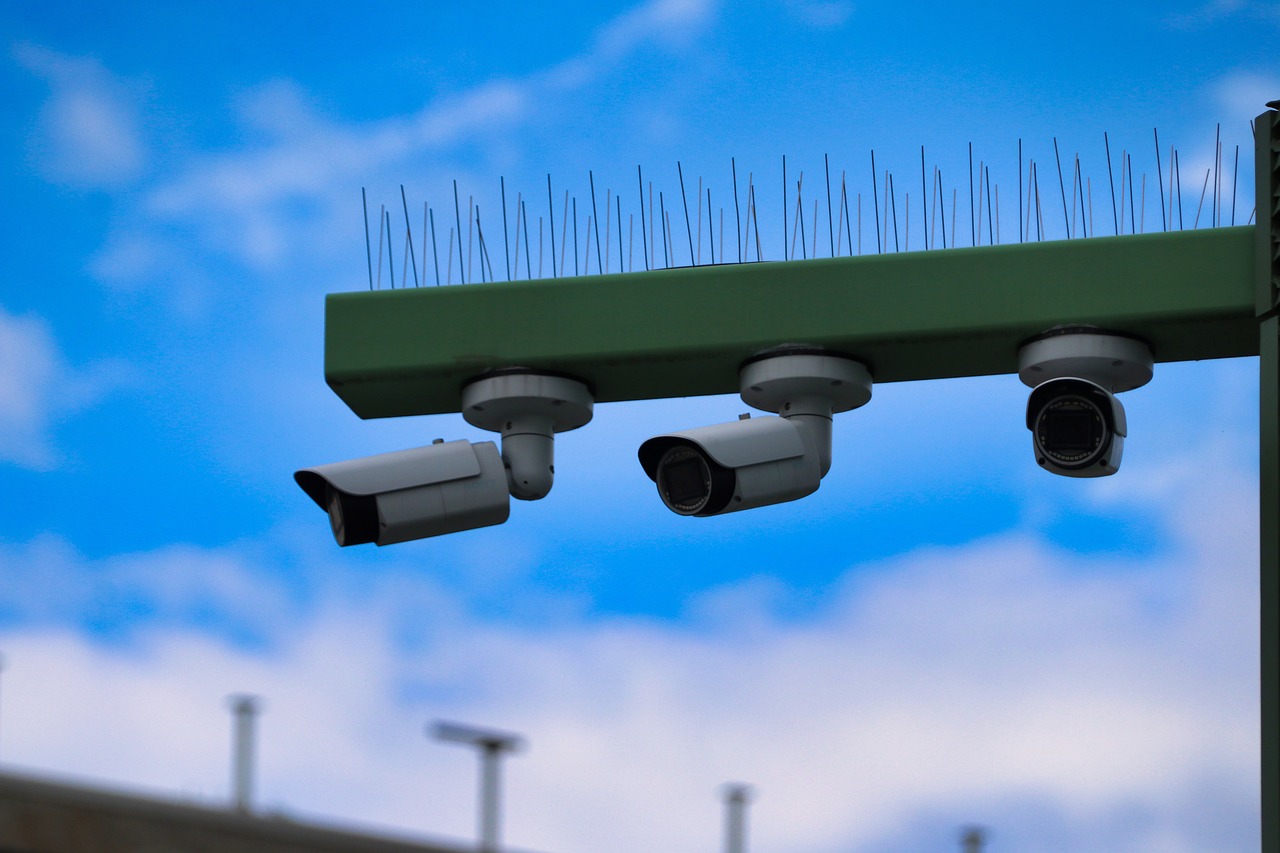
Social Media and Control
In today's digital landscape, social media platforms have emerged not just as tools for communication, but as powerful instruments of control and surveillance. It's fascinating to think about how these platforms, which many of us use daily, operate under principles that align closely with Foucault's concept of panopticism. When you post a status update, share a photo, or tweet your thoughts, you’re not just engaging with friends; you’re also participating in a complex system of observation and regulation. This raises a critical question: are we truly free in our expression, or are we constantly being watched and influenced by unseen forces?
Social media platforms like Facebook, Twitter, and Instagram have created environments where users are both the subjects and the objects of surveillance. On one hand, users share their lives openly, often without a second thought about privacy. On the other hand, these platforms meticulously track user behavior, preferences, and interactions, creating detailed profiles that can be used for targeted advertising, political campaigning, and even social control. This duality is a hallmark of panopticism—where the act of observation can influence behavior. As users, we might feel empowered by our ability to share and connect, yet we are simultaneously subjected to a form of control that shapes our online identities and interactions.
Moreover, the algorithms that govern what we see on our feeds are designed to keep us engaged, but they also serve a more insidious purpose. They create echo chambers, reinforcing our existing beliefs while limiting exposure to diverse perspectives. This is where the control aspect becomes particularly evident. The content deemed "worthy" of our attention is curated not just for relevance but for engagement, often prioritizing sensationalism over truth. In this way, social media acts as a gatekeeper, subtly guiding public discourse and influencing societal norms.
To illustrate the impact of social media on control, consider the following table that highlights the key mechanisms of surveillance and influence:
| Mechanism | Description |
|---|---|
| User Data Collection | Platforms collect vast amounts of personal data, including location, interests, and interactions. |
| Algorithmic Curation | Content is filtered based on user behavior, creating tailored experiences that can manipulate perceptions. |
| Social Pressure | The need for likes and shares can lead to self-censorship and conformity to popular opinions. |
| Public Shaming | Users can be subjected to mob mentality, where dissenting voices are silenced through social backlash. |
As we navigate this digital terrain, it's essential to remain aware of these dynamics. The question of control in social media is not merely about privacy; it's about the very fabric of our social interactions and the power structures that underpin them. Are we willing participants in our own surveillance, or can we find ways to resist and reclaim our agency? Understanding the implications of panopticism in the realm of social media is crucial if we are to foster a more equitable and open society.
- What is panopticism? Panopticism is a concept developed by philosopher Michel Foucault, describing a system of control where individuals are constantly observed, leading to self-regulation of behavior.
- How does social media exemplify panopticism? Social media exemplifies panopticism through constant surveillance of user behavior, data collection, and the influence of algorithms on what information is seen and shared.
- Can individuals resist social media control? Yes, individuals can resist by being mindful of their online presence, advocating for privacy rights, and supporting platforms that prioritize user agency.
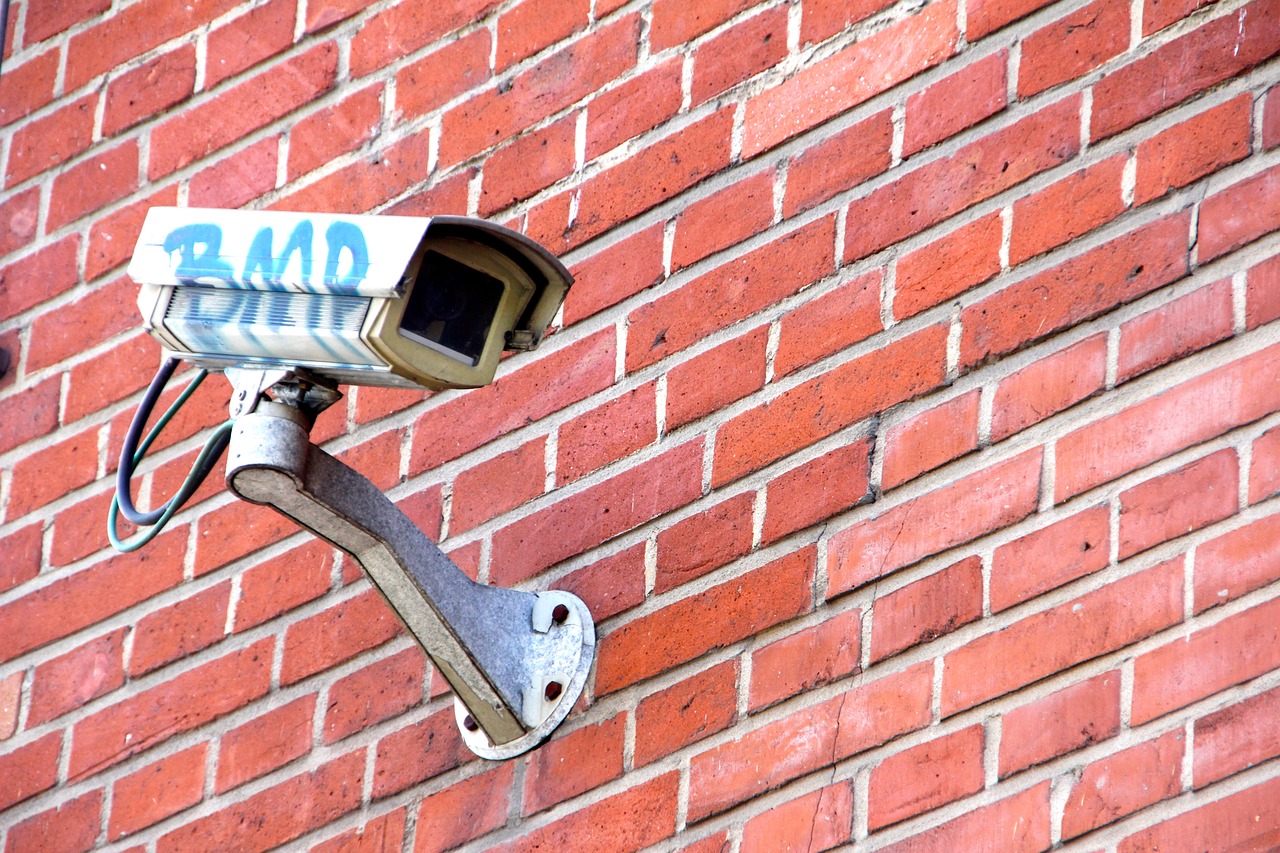
Resistance and Agency
In a world where surveillance seems omnipresent, the concept of resistance becomes not only relevant but essential. Michel Foucault’s panopticism might paint a bleak picture of power dynamics and control, but it also opens the door to discussions about agency—the capacity of individuals to act independently and make their own choices. So, how do we resist the watchful eyes of the panopticon? What forms does this resistance take? These questions are vital as we navigate our increasingly surveilled lives.
Resistance can manifest in various ways, from subtle acts of defiance to organized movements aimed at reclaiming privacy and autonomy. For instance, consider the rise of encryption technologies and privacy-focused applications. These tools empower individuals to shield their personal information from prying eyes, effectively turning the tables on surveillance. By encrypting messages or using anonymous browsing, people are not just passive subjects of surveillance; they are actively engaging in a form of resistance that challenges the status quo.
Moreover, social movements have emerged that advocate for digital rights and privacy protections, emphasizing the need for transparency and accountability from both governments and corporations. Organizations like the Electronic Frontier Foundation (EFF) and Privacy International are at the forefront of this struggle, fighting for policies that protect individuals from invasive surveillance practices. Their efforts highlight the importance of collective action in resisting the pervasive nature of panopticism.
Resistance also takes shape in the way individuals choose to engage with social media. While platforms like Facebook and Instagram are often criticized for their data collection practices, users can reclaim agency by being mindful of what they share. This conscious decision-making process can serve as a form of resistance against the commodification of personal data. By limiting their digital footprint, individuals send a powerful message about their right to privacy and control over their own information.
It's crucial to recognize that resistance isn't merely about rejecting surveillance; it's about redefining our relationship with power. Foucault argued that power is everywhere, embedded in social practices and institutions. Therefore, resistance must also be about reclaiming spaces—whether physical, digital, or social—where individuals can express themselves freely and without fear of observation. This could mean creating safe spaces for dialogue, fostering communities that prioritize privacy, or advocating for policies that protect civil liberties.
Furthermore, education plays a pivotal role in fostering resistance. By informing individuals about their rights and the implications of surveillance, we empower them to take action. Schools, community organizations, and online platforms can serve as venues for raising awareness and encouraging critical discussions about privacy, data rights, and the ethical dimensions of surveillance. This educational approach can cultivate a generation that is not only aware of the challenges posed by panopticism but is also equipped to confront them.
In conclusion, while Foucault's panopticism highlights the mechanisms of control in our society, it also invites us to consider our power to resist and reclaim agency. Whether through technology, collective action, or education, individuals can challenge the structures that seek to surveil and control them. Ultimately, resistance is not just about fighting against surveillance; it's about envisioning and creating a future where freedom and privacy are valued and protected.
- What is panopticism? Panopticism is a concept developed by Michel Foucault that describes a social theory about the effects of surveillance on behavior and power dynamics in society.
- How can individuals resist surveillance? Individuals can resist surveillance by using privacy-focused tools, being mindful of their online presence, and advocating for digital rights and privacy protections.
- What role does education play in resistance? Education raises awareness about surveillance practices and empowers individuals to understand their rights, fostering a culture of resistance against invasive monitoring.
- Are there organizations that advocate for privacy rights? Yes, organizations like the Electronic Frontier Foundation (EFF) and Privacy International work to protect digital rights and promote policies that safeguard individual privacy.
Frequently Asked Questions
- What is Michel Foucault's concept of panopticism?
Michel Foucault's panopticism refers to a social theory about power and surveillance. It suggests that modern societies are structured in a way that allows for constant observation of individuals, leading to self-regulation and conformity. The term originates from the Panopticon, a design for a prison by Jeremy Bentham, where inmates are always visible to a central watchtower, creating a sense of being watched.
- How does panopticism apply to modern surveillance?
In today's world, panopticism manifests in various forms of surveillance, from CCTV cameras in public spaces to data collection by tech companies. This constant monitoring affects how people behave, often leading to a culture of self-censorship. The idea is that when individuals know they could be watched, they modify their actions to align with societal norms.
- What historical context influenced Foucault's theory?
Foucault developed his theories during a time of significant social and political change in the 20th century. The rise of disciplinary institutions, such as prisons and schools, alongside shifts in governance, shaped his understanding of how power operates through surveillance. He saw these changes as pivotal in creating a society where control is maintained not just through force, but through observation.
- What is digital panopticism?
Digital panopticism refers to the surveillance that occurs in the online realm, particularly through social media and digital platforms. Users voluntarily provide personal information, which is then monitored and analyzed. This creates a new dynamic of control where individuals are both the surveilled and the surveillors, often leading to questions about privacy and autonomy.
- How do institutions perpetuate panoptic structures?
Institutions like schools and prisons embody panoptic principles by employing surveillance techniques to monitor behavior. This constant oversight can lead to psychological effects, where individuals internalize the gaze of authority and adjust their behavior accordingly. It raises concerns about the impact of such environments on personal freedom and mental health.
- What are some critiques of panopticism?
Critics argue that Foucault's panopticism oversimplifies the complex nature of power dynamics. Some suggest that it disregards the potential for resistance and agency among individuals. Others point out that not all surveillance is inherently oppressive; it can also be used for protection and safety in certain contexts.
- How does panopticism influence contemporary politics?
In the realm of politics, panopticism plays a crucial role in shaping governance strategies. The balance between security and civil liberties often reflects panoptic principles, where surveillance is justified in the name of safety. This can lead to a public that is more compliant but also raises ethical questions about the limits of authority.
- What role does social media play in panopticism?
Social media platforms exemplify panoptic structures by enabling users to share their lives while simultaneously being monitored by both peers and corporations. This duality can empower individuals to express themselves, but it also subjects them to scrutiny, leading to a complex relationship between freedom and control.
- How can individuals resist panoptic structures?
Resistance against panoptic structures can take many forms, from advocating for privacy rights to engaging in collective actions that challenge surveillance practices. Building awareness about these issues and fostering community solidarity are essential steps in reclaiming agency in a surveilled society.










